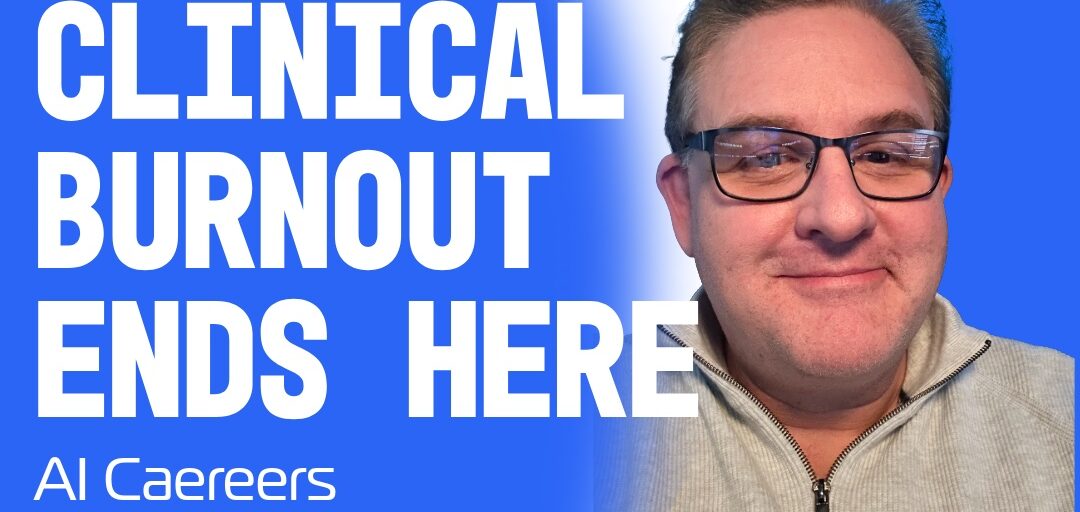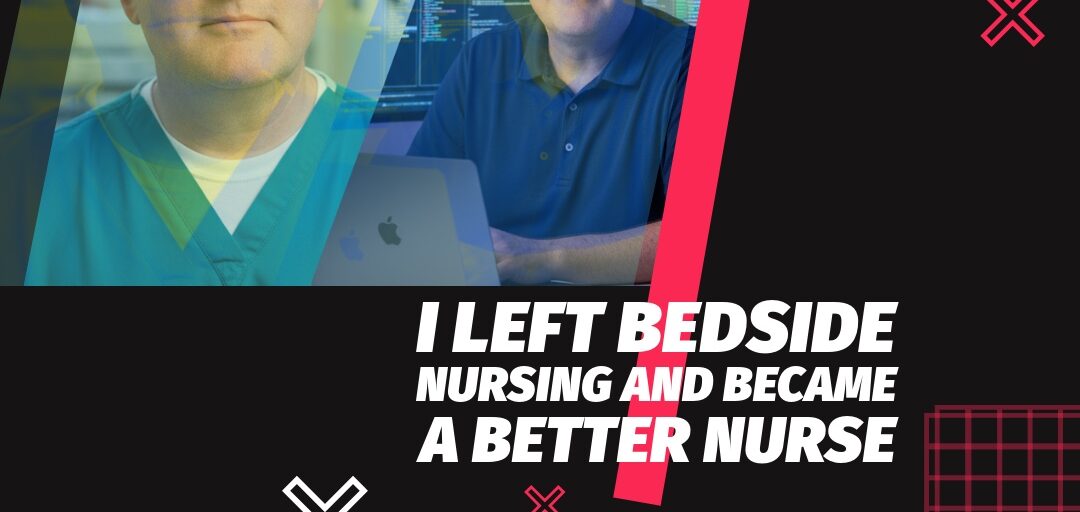Beyond the Bedside: Transforming Your Clinical Expertise into a Digital Health Career
Written by Rod on May 5, 2025
Are you a healthcare professional who loves making a difference but feels trapped by the demands of direct patient care? Your clinical expertise in digital health could be the key to transforming your career—and your life.
The Hidden Crisis in Traditional Healthcare
Let’s be honest—the healthcare industry can be BRUTAL on your personal life. Many clinicians face:
- Exhausting 12-hour shifts that leave you physically drained
- Unpredictable schedules that make planning family events nearly impossible
- Growing workloads with shrinking resources
- Workplace chaos that prevents delivering the care you know patients deserve
- Limited control over when and how you work
These challenges aren’t just annoying—they’re creating an epidemic of burnout and career dissatisfaction. As one nurse put it, “I was missing my kid’s birthday for the third year in a row because of my shift schedule. Something had to change.”
Your Clinical Knowledge: Digital Gold
Here’s what they don’t tell you in nursing school or medical training: your understanding of healthcare operations is incredibly valuable OUTSIDE traditional settings.
Think about it—how can someone build effective healthcare technology if they’ve never worked in a hospital? How can they create software for nurses if they’ve never been a nurse?
“Healthcare technology companies are DESPERATE for people who actually understand healthcare from the inside.”
The most valuable skill in digital health isn’t coding—it’s your clinical workflow knowledge. This insight is pure gold because it can’t be taught in a classroom; it can only be gained through experience.
Digital Health: Where Clinical Expertise Meets Technology
Digital health is transforming not just patient care but creating revolutionary career options for clinicians. This booming industry offers something traditional clinical roles often can’t: FREEDOM, FLEXIBILITY, and FINANCIAL GROWTH.
Many digital health roles for clinicians include:
- Clinical Consultant: Translating between technical teams and healthcare staff
- Program Manager: Overseeing implementation of health technology
- Analyst: Examining healthcare data to improve outcomes
- Team Leader: Managing digital health teams
- Testing Specialist: Ensuring healthcare solutions actually work
- Training Coordinator: Teaching clinicians to use new technologies
The beautiful part? These roles typically offer:
- Remote or hybrid work arrangements
- Regular business hours (no nights, weekends, or holidays)
- Competitive or higher salaries (35%+ increases are common)
- Results-focused environments instead of “time-in-seat” cultures
- Greater impact on healthcare at scale
Common Questions About Making the Transition
“Do I need to learn coding?”
No. Most roles require zero coding. Your clinical expertise is the hard part—any technical skills can be learned in weeks or months.
“Will I need another degree?”
Most digital health companies value experience over degrees. Your clinical background is already the qualification they’re desperate to find.
“What if I’m not tech-savvy?”
Basic computer skills are enough to start. You’ll learn as you go, and companies provide training for the specific tools they use.
“Can I really work remotely?”
Many positions are 100% remote or hybrid. Digital health embraced flexible work arrangements long before other industries.
Creating a Sustainable Healthcare Career
Burnout isn’t just uncomfortable—it’s DEVASTATING to your health, relationships, and career longevity. Digital health offers pathways to more sustainable work patterns by:
- Focusing on outcomes rather than hours worked
- Providing clearer boundaries between work and personal time
- Eliminating workplace stressors like commuting and physical exhaustion
- Supporting employee wellbeing as a business priority
With these changes, you can build a career that ENHANCES your life instead of consuming it.
Real Impact, Different Approach
The transition to digital health isn’t about abandoning healthcare—it’s about finding a different way to contribute.
In traditional care settings, you might help dozens of patients per week. In digital health, the systems you help implement could benefit thousands of patients daily. You’re still a healthcare professional, just with greater leverage and impact.
One former clinician shared: “I no longer miss my children’s important moments. I can be productive at work AND present in my life. And the best part? I’m actually helping MORE patients now than I ever could at the bedside.”
Practical Steps to Start Your Transformation
Ready to explore digital health opportunities? Here’s how to begin:
- Inventory your clinical expertise – What specific workflows and systems do you understand deeply?
- Research digital health companies – Look for organizations addressing problems you’ve experienced firsthand
- Update your resume to emphasize your clinical knowledge, problem-solving abilities, and communication skills
- Connect with clinicians who’ve already made the transition
- Look for entry roles like Clinical Consultant, Implementation Specialist, or Clinical Advisor
The future of healthcare needs people like you—clinicians who understand the realities of care delivery—just not in the ways you might have expected.
Are you ready to transform your clinical expertise into a digital health career that values both your knowledge AND your wellbeing?
Your experience isn’t just shifts you’ve survived—it’s an asset that’s in high demand beyond the bedside. The digital transformation of healthcare can’t happen without you.
Tagged as clinical knowledge, digital health careers, healthcare burnout, healthcare career transition, healthcare technology, nursing career alternatives, physician career options, remote healthcare jobs, work-life balance




